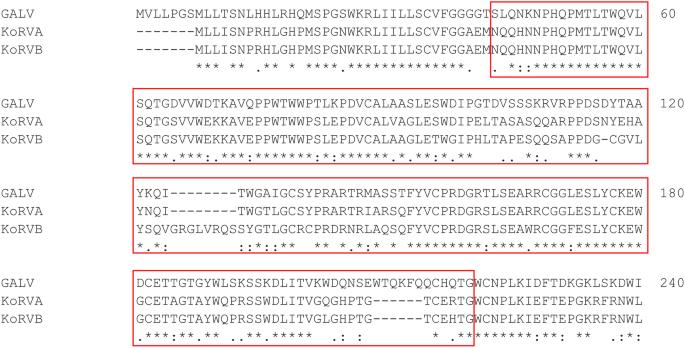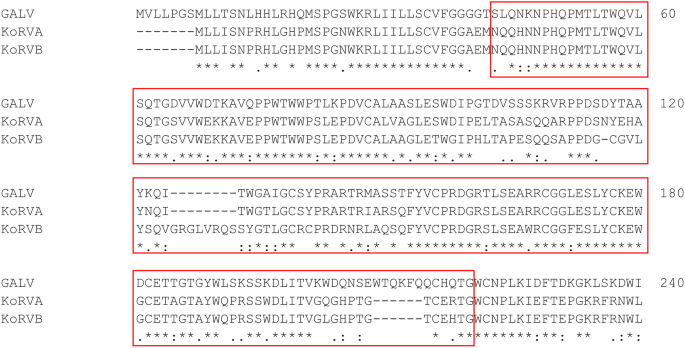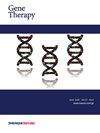Development of KoRV-pseudotyped lentiviral vectors for efficient gene transfer into freshly isolated immune cells
IF 4.6
3区 医学
Q1 BIOCHEMISTRY & MOLECULAR BIOLOGY
引用次数: 0
Abstract
Allogeneic cell therapies, such as those involving macrophages or Natural Killer (NK) cells, are of increasing interest for cancer immunotherapy. However, the current techniques for genetically modifying these cell types using lenti- or gamma-retroviral vectors present challenges, such as required cell pre-activation and inefficiency in transduction, which hinder the assessment of preclinical efficacy and clinical translation. In our study, we describe a novel lentiviral pseudotype based on the Koala Retrovirus (KoRV) envelope protein, which we identified based on homology to existing pseudotypes used in cell therapy. Unlike other pseudotyped viral vectors, this KoRV-based envelope demonstrates remarkable efficiency in transducing freshly isolated primary human NK cells directly from blood, as well as freshly obtained monocytes, which were differentiated to M1 macrophages as well as B cells from multiple donors, achieving up to 80% reporter gene expression within three days post-transduction. Importantly, KoRV-based transduction does not compromise the expression of crucial immune cell receptors, nor does it impair immune cell functionality, including NK cell viability, proliferation, cytotoxicity as well as phagocytosis of differentiated macrophages. Preserving immune cell functionality is pivotal for the success of cell-based therapeutics in treating various malignancies. By achieving high transduction rates of freshly isolated immune cells before expansion, our approach enables a streamlined and cost-effective automated production of off-the-shelf cell therapeutics, requiring fewer viral particles and less manufacturing steps. This breakthrough holds the potential to significantly reduce the time and resources required for producing e.g. NK cell therapeutics, expediting their availability to patients in need.


开发用于向新鲜分离的免疫细胞进行高效基因转移的 KoRV 伪型慢病毒载体
异体细胞疗法,如涉及巨噬细胞或自然杀伤(NK)细胞的疗法,在癌症免疫疗法中越来越受到关注。然而,目前使用慢病毒或伽马逆转录病毒载体对这些细胞类型进行基因修饰的技术存在一些挑战,如需要细胞预激活和转导效率低,这阻碍了临床前疗效评估和临床转化。在我们的研究中,我们描述了一种基于考拉逆转录病毒(KoRV)包膜蛋白的新型慢病毒伪型。与其他伪型病毒载体不同的是,这种基于 KoRV 的包膜在转导直接从血液中新鲜分离的原代人类 NK 细胞、新鲜获得的单核细胞(已分化为 M1 巨噬细胞)以及来自多个供体的 B 细胞时表现出了显著的效率,在转导后三天内实现了高达 80% 的报告基因表达。重要的是,基于 KoRV 的转导不会影响关键免疫细胞受体的表达,也不会损害免疫细胞的功能,包括 NK 细胞的活力、增殖、细胞毒性以及分化巨噬细胞的吞噬功能。保持免疫细胞功能是细胞疗法成功治疗各种恶性肿瘤的关键。通过在扩增前实现新鲜分离免疫细胞的高转导率,我们的方法实现了现成细胞疗法的简化和高成本效益自动化生产,需要的病毒颗粒更少,生产步骤更少。这一突破有望大幅减少生产 NK 细胞疗法等所需的时间和资源,加快向有需要的患者提供这些疗法。
本文章由计算机程序翻译,如有差异,请以英文原文为准。
求助全文
约1分钟内获得全文
求助全文
来源期刊

Gene Therapy
医学-生化与分子生物学
CiteScore
9.70
自引率
2.00%
发文量
67
审稿时长
4-8 weeks
期刊介绍:
Gene Therapy covers both the research and clinical applications of novel therapeutic techniques based on a genetic component. Over the last few decades, significant advances in technologies ranging from identifying novel genetic targets that cause disease through to clinical studies, which show therapeutic benefit, have elevated this multidisciplinary field to the forefront of modern medicine.
 求助内容:
求助内容: 应助结果提醒方式:
应助结果提醒方式:


